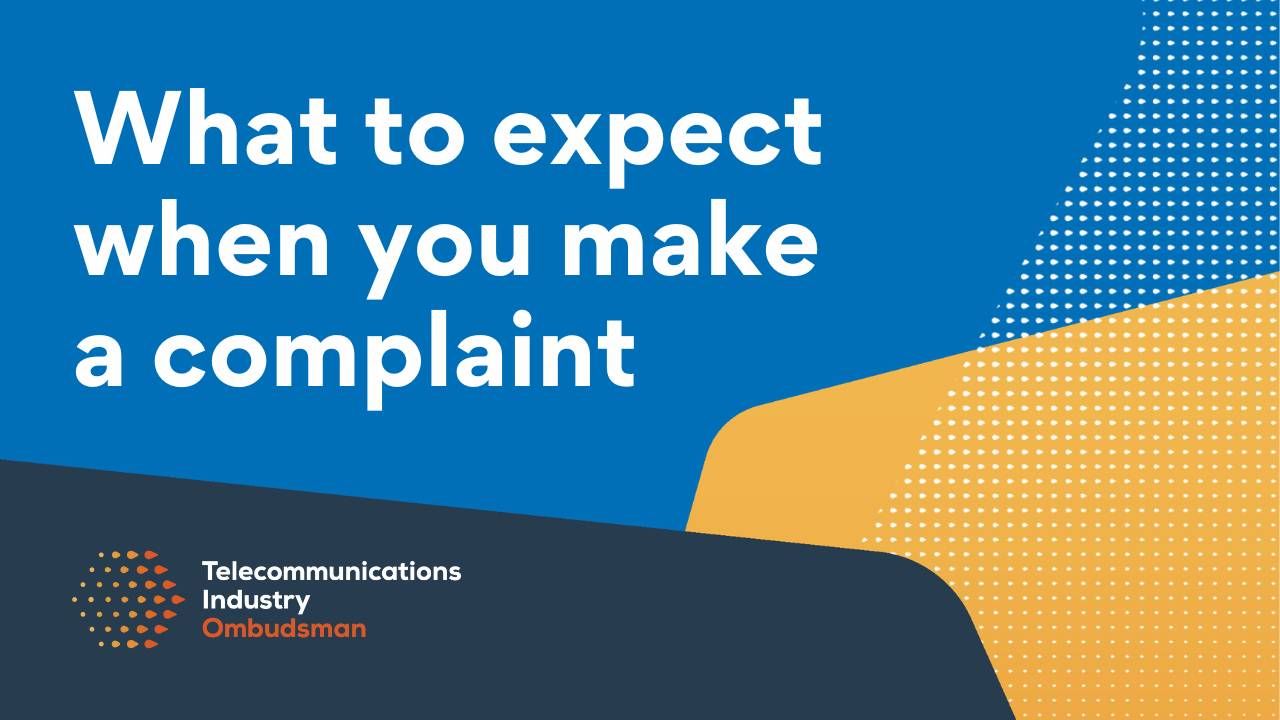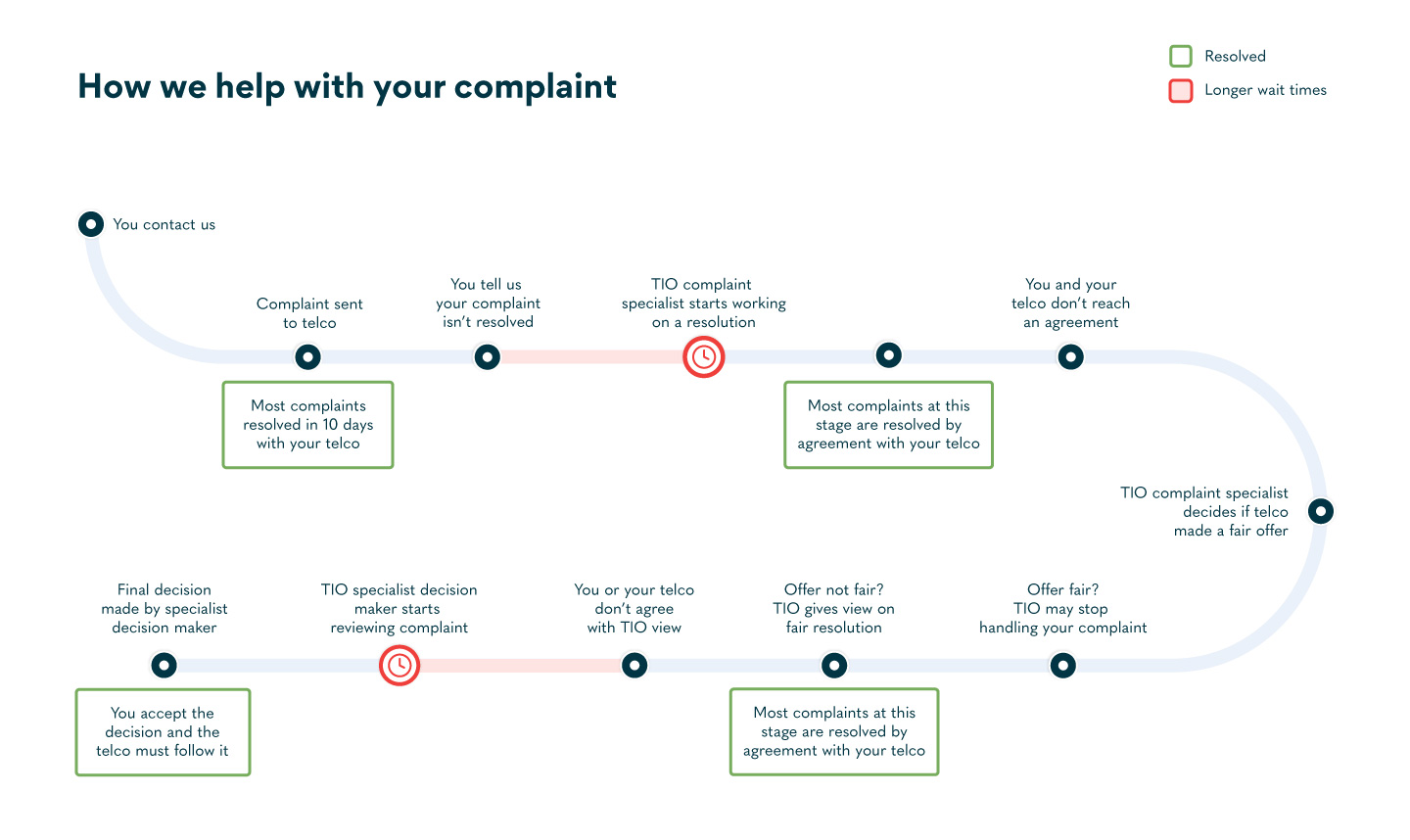
What to expect

When Wendy can’t fix a problem with her telco, she asks the TIO for help. What happens when she makes a complaint with the TIO?
View what happens when a complaint isn't fixed.
Before you contact us
First, try to resolve the complaint with your telco. We can’t help until you’ve tried to resolve it directly with them.
Here’s a guide on how to work with your telco.
You can contact us to make a complaint online or by phone, email, fax or post – choose the method that works best for you.
What you need to tell us
You need to tell us:
- your name and contact details or the name and details of the person you want to represent you
- the telco your complaint is about
- the services (home phone, mobile or internet) your complaint is about
- a way we can identify your service, this could be an account number, phone number or the address where your service is located
- what the problem is, when and how it started, how it has impacted you and what your telco said and did about the problem
- how you want the telco to resolve your complaint.
We refer the complaint to your telco
In most cases, we’ll give your telco 10 working days to resolve the problem with you.
The timeframe we give your telco is different in some situations:
- two working days if there’s an urgent problem
- 15 working days if your telco hasn’t had an opportunity to resolve your complaint yet
- 20 working days if you knew about the problem more than two years ago.
If you tell us you disagree with an amount of money your telco says you owe, we tell your telco to stop any actions related to getting you to pay it.
If your complaint is not resolved, you need to contact us
If the timeframe we give your telco to resolve the problem passes, and you’re not satisfied with your telco's response, you need to tell us. We will ask you why you’re not satisfied. Then, we’ll decide what the next step is.
In some cases, we may decide to stop handling your complaint. If this happens we will tell you why and you can ask for an Appeal.
We consider what’s fair in your case
If we continue handling your complaint, we’ll contact you and look at the problem in more detail.
The next steps will depend on your situation. We may:
- speak with you and the telco together or separately
- ask you and the telco to give us more information
- assess what a fair outcome is for your complaint.
To assess what’s fair in your case, we look at:
- the impact of the issues on you and the telco
- the impact of different outcomes on you and the telco
- relevant laws, rules and guidelines
- the best way we see most telcos handle similar problems.
More information about our process and powers
Our complaints is set out in more detail in our Complaint Handling Procedures.
Our Terms of Reference are the rules about the complaints we can handle and how we can handle them.
